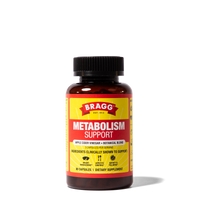In a wellness world full of bold claims and viral hacks, scientific credibility isn’t just important—it’s everything. A recent study from Lebanon claiming weight loss benefits from apple cider vinegar was retracted due to flawed methodology and unreliable data.
Bragg never relied on this study to support our acetic acid claims. We welcome its retraction as a reminder that real wellness starts with real science. We only use peer-reviewed, random controlled trials and science-backed research done on healthy adults as primary substantiation. At Bragg, transparency and truth aren’t trends—they’re our foundation.
The Importance of Scientific Rigor
The retracted study, while initially promising, didn’t meet the gold standard of reproducibility or statistical soundness. The authors called their errors “honest mistakes,” and the journal’s decision to retract was the right move for scientific integrity.
This moment highlights a bigger issue: in a landscape flooded with influencer-driven advice and wellness shortcuts, consumers are left wondering what’s real. They’re not looking for hype—they’re looking for a dose of what works.
Bragg’s Commitment to Peer-Reviewed Evidence
Bragg’s acetic acid health benefit claims on its apple cider vinegar products are supported by a robust foundation of peer-reviewed, random controlled trials and science-backed research. These studies have consistently demonstrated their role in supporting:
1. Healthy Weight Management
A 2005 study published in the European Journal of Clinical Nutrition found that vinegar supplementation lowered glucose and insulin responses and increased satiety after a bread meal in healthy subjects. Translation? This suggests that acetic acid may help curb appetite and support weight management when consumed as part of a balanced diet.
Study: E. Ostman, Y. Granfeldt, L. Persson, and I. Bjorck. “Vinegar supplementation lowers glucose and insulin responses and increases satiety after a bread meal in healthy subjects.” European Journal of Clinical Nutrition 59: 983 - 988, 2005.
2. Healthy Blood Glucose Levels
In 2010, researchers published findings in the Annals of Nutrition and Metabolism showing that vinegar consumption improved glycemic responses in healthy adults. These results point to natural blood sugar support from acetic acid, especially when consumed before carbohydrate-rich meals.
Study: C. Johnston, I. Steplewska, C. Long, L. Harris, R. Ryals. “Examination of the anti-glycemic properties of vinegar in healthy adults.” Annals of Nutrition and Metabolism. 56: 74 - 79, 2010.
3. Healthy Cholesterol Levels
A 2009 study in Bioscience, Biotechnology and Biochemistry demonstrated that apple cider vinegar intake reduced body weight, body fat mass, and serum triglyceride levels in Japanese subjects. A 2009 study in Bioscience, Biotechnology and Biochemistry demonstrated that apple cider vinegar intake reduced body weight, body fat mass, and serum triglyceride levels in Japanese subjects. These findings reinforce the metabolic benefits of acetic acid, particularly in populations at risk for cholesterol issues.
Study: Tomoo Kondo, Mikiya Kishi, Takashi Fushimi, Shinobu Ugajin and Takayuki Kaga. “Vinegar Intake Reduces Body Weight, Body Fat Mass, and Serum Triglyceride Levels in Obese Japanese Subjects.” Bioscience, Biotechnology and Biochemistry 73: 1837-1843 (2009).
Looking Ahead
The retraction of the Lebanese study is not a setback for the apple cider vinegar community—it’s a step forward for scientific rigor. At Bragg, we’re here to lead with honesty, discernment, and evidence.
We invite our community to stay curious, ask questions, and demand quality. Because when it comes to your health, only the truth will do.
























